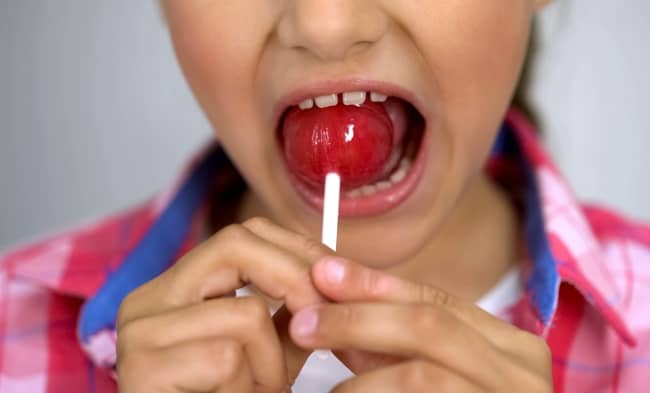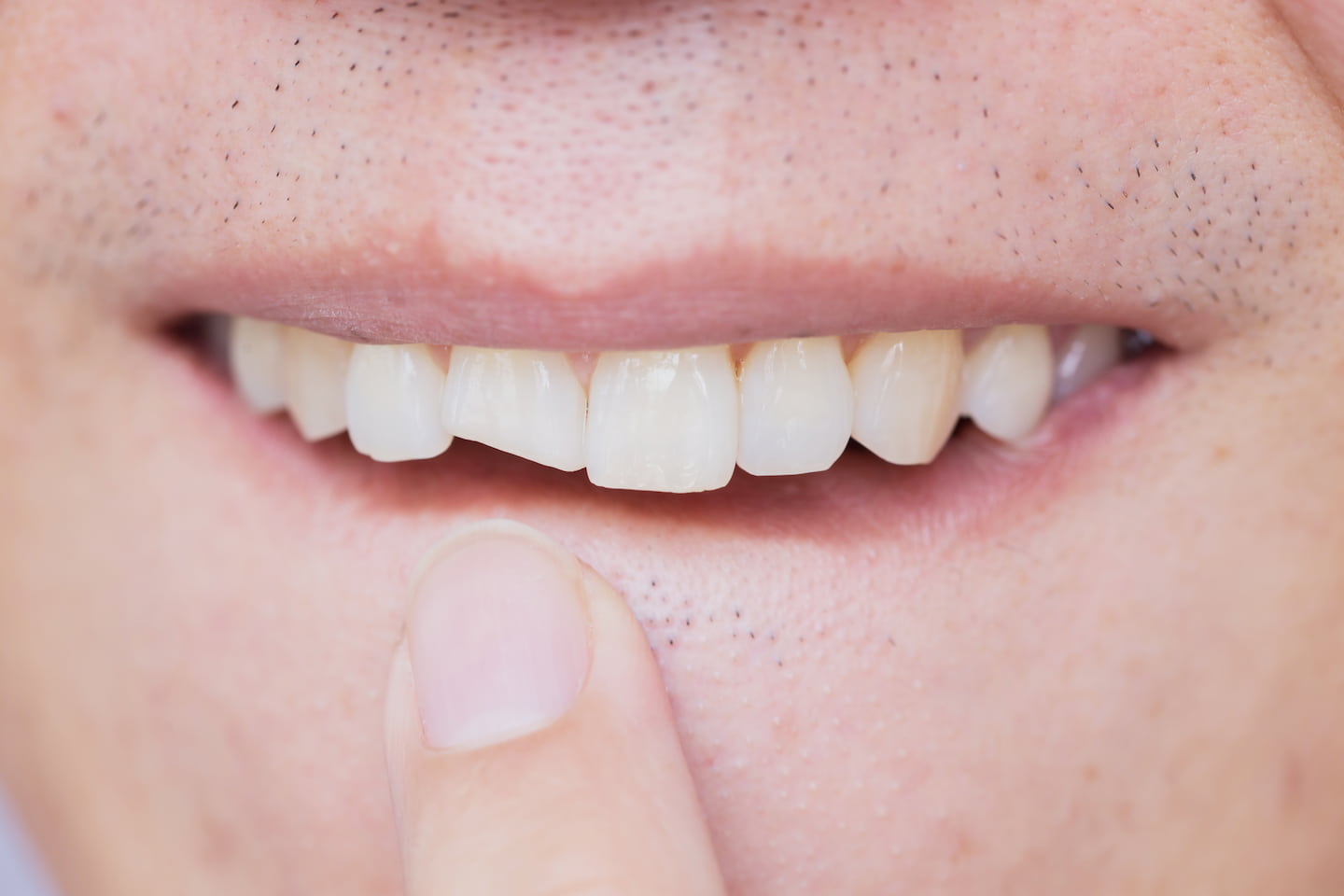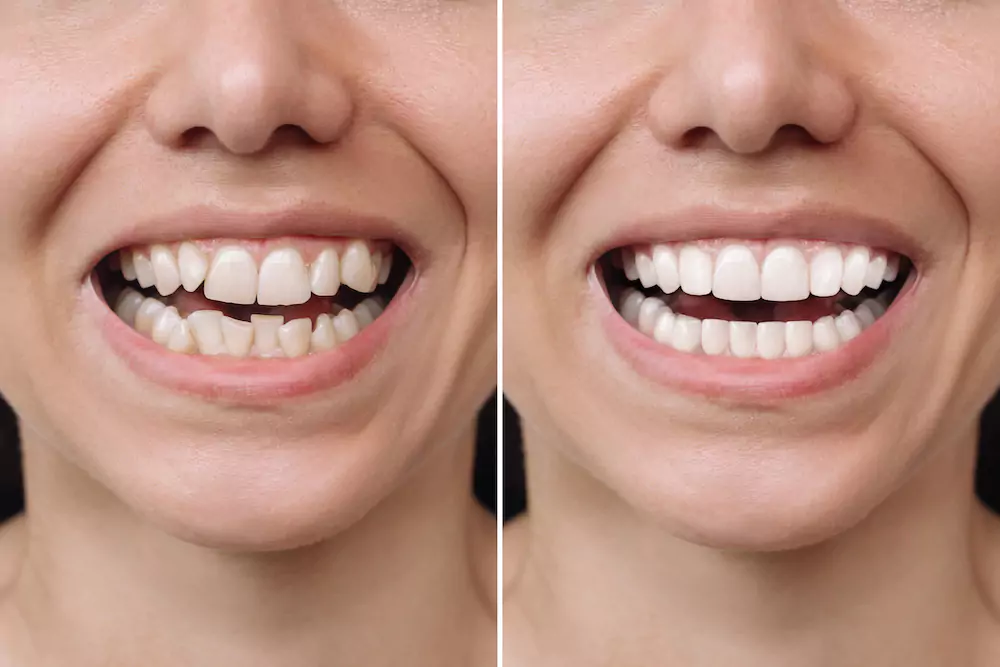
The Negative Effects of Sugar on Teeth
Brushing your teeth twice a day and flossing every day play a crucial role in oral health. But what about sugar consumption? We often hear about how bad sugar is for teeth, but why?
In this post, we’ll look at what causes cavities, the roles of sugars and starches in tooth decay, and how frequent sugar consumption may be more important than the quantity of sugar consumed.
What Are Cavities?
Cavities are small holes in the surface of teeth that are caused by tooth decay. When ignored, small cavities can reach the deeper layers of teeth and turn into a serious oral health issue. Left untreated, tooth decay can lead to infection or even loss of teeth.
What Causes Cavities?
We have all been warned that sugar causes cavities, but what makes sugar so bad for teeth?
The answer comes down to bacteria. Our mouths are home to beneficial bacteria that maintain balance in the mouth, defend against bad breath, help start the digestive process, and protect the teeth. However, our mouths are also home to harmful bacteria, specifically Streptococcus sobrinus and Streptococcus mutans.
Both types of these bad bacteria feed on sugar. Even a minor coating of sugar provides ample food for bacteria to grow. The more sugar your teeth come into contact with, the more likely you are to develop decay.
As these bacteria feed and grow, they form a sticky film on teeth known as plaque. Once formed, plaque is difficult to clear away. If plaque is allowed to build up on teeth, it becomes acidic and starts to eat away at the surface of teeth, known as tooth enamel.
How Does Saliva Protect Against Tooth Decay?
The mouth has several natural defences against tooth decay, including saliva.
Saliva forms a barrier that helps protect teeth against food build-up and unwanted bacteria. When you swallow, saliva helps wash away bad bacteria and food particles.
While the saliva can help wash away some degree of debris and bacteria, excess sugar can overwhelm the mouth’s natural defences and allow plaque to form.
Plaque produces too much acid for saliva to wash away, allowing the acid to attack your tooth enamel. This process leads to cavities and tooth decay. Sticky, sugary foods are especially harmful as they are harder for saliva to wash away, allowing bacteria more time to feed and creating harmful acids.
When sticky foods are consumed or there is more acid than saliva can wash away, acids eat away at tooth enamel. This makes the tooth enamel softer, easier to penetrate, and more susceptible to decay.
As the excess acids wear away and weaken the enamel, small holes get created. Bacteria can then enter these holes and continue eating away at teeth until they reach the next layer, dentin.
This layer is even softer and more delicate than enamel, causing decay to occur even faster once bacteria reach the dentin. As bacteria reach the dentin, you will likely begin feeling sensitivity and pain around the area of decay.
If left untreated, the decay can eventually reach the tooth pulp and even the jawbone. At this point, the only treatment for this level of decay is a root canal treatment or possibly the removal of the affected tooth.
The use of fluoride toothpaste can help speed up remineralisation to fortify teeth against harmful bacteria and decay. However, the remineralisation process is extremely slow, making it better to prevent demineralisation and decay in the first place.
The Effect of Frequent Sugar Consumption on Tooth Decay
For more than a century, scientists have debated the effect of sugar on tooth decay. Although further research is needed, studies indicate that the frequency of sugar consumption may be more important than the quantity of sugar consumed regarding tooth decay.
This study indicates that the use of fluoride toothpaste can significantly reduce enamel demineralisation caused by sugar consumption.
Simply put, it is best to limit how often you consume sugary or starchy foods and to use fluoride toothpaste twice a day as part of a good oral hygiene routine.
Tips for Preventing Cavities
Here are the best ways to prevent cavities:
- Limit your intake of sugary foods and starches (this includes natural sources of sugar, such as molasses, maple syrup, and honey)
- Avoid frequent consumption of sugar (aim to consume sugary or starchy foods no more than three times a day)
- Limit your intake of chewy or sticky foods that stick to teeth as these put you at a higher risk of decay (dried fruit, candies, taffies, etc.)
- Maintain a good oral hygiene routine that includes twice a day brushing and daily flossing
- Use fluoride toothpaste to help negate the effects of sugar (ask your dentist if you should also include fluoride mouthwash as part of your oral hygiene routine)
- Avoid or limit your intake of sugary drinks (along with a high sugar content, sodas are acidic and can cause even more damage to tooth enamel)
- See your dentist for regular checkups to ensure any tooth decay is caught and treated as early as possible (learn more about the benefits of dental checkups)
- Watch out for signs of tooth decay (swollen or tender areas of the gums, tooth sensitivity, gums that bleed after flossing or eating hard foods, tooth pain, persistent bad breath, gum recession)
- Consume a balanced, nutritious diet complete with whole foods and plenty of fresh fruits and vegetables (apples, carrots, and celery are especially beneficial for dental health)
- Drink enough water throughout the day to promote saliva production and help wash away food particles and debris from your mouth
Conclusions
Studies indicate that the frequency of sugar consumption may be more important than the quantity of sugar consumed. Eating sugary or starchy foods more than three times a day, especially in the absence of fluoride toothpaste, may promote tooth decay.
The takeaway? It may be best to limit your intake of any foods to no more than five times throughout the day. The consumption of sugary foods should be limited to three times a day or less. A fluoride toothpaste should be used to brush the teeth twice a day and patients should see their dentist for general checkups every 6 months.
Maintain a Bright, Healthy Smile with Genesis Dental
Sugar is found in many of the foods and beverages we consume every day. While it is okay to occasionally indulge in a sweet treat, it is important to pay attention to your overall sugar consumption, as well as how often you consume sugar.
By limiting how much sugar you eat and how often you eat it, you can reduce your risk of tooth decay. Further, it is crucial to brush twice a day with fluoride toothpaste as part of your oral hygiene routine.
At Genesis Dental, our skilled team is here to help you maintain a healthy, clean smile for life.
With our combination of state-of-the-art equipment and technology, ongoing education, and commitment to customer service, we aim to be your trusted dentist in Canning Vale. Whether you have questions about the connection between sugar and cavities, have a concern about your oral health, or need to schedule a general checkup, please contact us.




